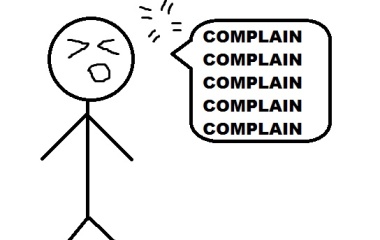
One can reasonably argue that the primary theme of sefer Bamidbar is that of leadership. How much responsibility must a leader take for the failings of the people? What should be the result when a leader fails – for whatever reason – in delivering on their primary mission? How does one react to challenges to one’s leadership? How does one deal with the aftermath of crisis? What should be the consequences for a leader’s mistakes, and how should a successor be chosen?
Bamidbar forces us to confront these and many other questions.
There is an inherent tension between leaders and the people, especially in a society in which (hopefully) all are equal before the law. If G-d’s covenant is with “all of you…your tribal heads, your elders, and your officials, every householder in Israel, your children, your wives, even the stranger within your camp, from woodchopper to water drawer” (Devarim 29:9-10) what, if anything, should be the special status of those who are chosen as leaders?
This argument was at the core of Korach’s challenge to the leadership of Moshe and Aharon. “You have gone too far! For all the community are holy, all of them, and the Lord is in their midst. Why then do you raise yourselves above the Lord’s congregation?” (Bamidbar 16:3). As a question, it is most legitimate. However, when it becomes a slogan and rallying cry to turn the masses against the leadership it becomes a statement, a lie actually, one worthy of severe punishment. It is this question that the Torah addresses in parshat Beha'alotcha; sadly, Korach was not paying attention.
“And G-d spoke to Moshe to say over: Speak to Aharon and say to him, “When you mount the lamps, let the seven lamps give light at the front of the lamp stand” (Bamidbar 8:1-2). Being that the Torah had already discussed the laws of lighting the Menorah (Vayikra, chapter 24), Rashi wonders why the Torah repeats the laws of the menorah at this point in the Chumash. Quoting our Midrashic Sages, Rashi explains that “when Aaron saw the dedication offerings of the princes, he felt distressed because neither he nor his tribe was with them in the dedication, whereupon the Holy One, blessed be He, said to him, ‘By your life! Your part is of greater importance than theirs, for you will kindle and set in order the lamps’”.
Implicit in this teaching is that Aharon, as the kohen gadol, high priest, must have a different role than all the other leaders. The Torah has just spent 89 long verses repeating the same words 12 times over, highlighting that each of the 12 leaders of the 12 tribes brought the exact same gift upon the dedication of the Mishkan. All are equal before G-d and that is a lesson the Torah repeats 12 times. Aharon too could have brought the same gift as his co-leaders, or so one might have thought. Yet the Torah teaches that Aharon is apparently just a bit more equal, and that there is a distinct role for him. We do need leaders, and the role of a leader is different from that of the people and that of the role of the leader.
Yet sadly, it appears that Aharon himself did not fully grasp this lesson. “Miriam and Aharon spoke against Moshe because of the Cushite woman he had taken for he had married a Cushite woman. They said, ‘Was it only to Moshe that G-d has spoken? Did He not speak to us as well?’” (Bamidbar 12:1-2). Miriam and Aharon did not understand that even amongst this great team of leaders there was a hierarchy, with Moshe serving as the leader. “‘Hear My words’, G-d responded. ‘When prophets of the Lord arise among you, I make Myself known to them in a vision, I speak with them in a dream. Not so with My servant Moshe; in my entire house he is the trusted one. With him I speak mouth to mouth, plainly and not in riddles, and he beholds the likeness of the Lord. How then did you not shrink from speaking against My servant Moshe!’” (Bamidbar 12:6-8).
Miriam and Aharon were great leaders. Miriam’s role may even be more important than Moshe[1] – yet they failed to understand that Moshe was unique, in a league to himself. Only he could speak face to face with G-d.
This is a message the mergalim failed to heed. “Why is the section dealing with the spies put in juxtaposition with the section dealing with Miriam’s [and Aharon’s] punishment? To show the grievousness of the spies’ sin: because she was punished on account of the slander which she uttered against her brother, and these sinners witnessed it and yet they did not take a lesson”. The meraglim failed to understand that the land of Israel is not like any other land. “It is the land the Lord, your G-d, seeks out; the eyes of Lord your G-d are always upon it, from the beginning of the year to the end of year” (Devarim 11:12). To quote David Ben-Gurion: “In Israel, in order to be a realist you must believe in miracles.[2]”
We need great leaders – leaders who understand that while they may have a different role to play, all are equal before G-d. That leadership talents are given by G-d to be developed by man in order to serve others. And the people must understand that leaders must be given the proper tools to lead.
We are all impacted by the need to balance equal treatment for all and the uniqueness of some. It is not easy to know where to draw the line between equality and drawing distinctions. It is for good reason that our Sages ordained we make havdallah, the blessings of distinctions, in the blessing of chonen hada’at, the blessing for wisdom. As our Sages so profoundly note, eem ein deah havdallah minayan–if there is no wisdom, how will one make distinctions? (Yehurshalmi, Brachot 5:2,11)
How do we balance the notion that all human beings are created in the image of G-d with the choosiness of the Jewish people? That Israel must be a “light unto the nations” yet remove idolatry from the land? That free choice be given to all while the country as a whole reflects Jewish values? These are questions we must struggle with so that the Menorah we light will shine brightly.
[1] Thus water was given in the merit of Miriam, while less important food was granted in the merit of Moshe. Not to mention that without Miriam there would never have been a Moshe.
[2] If I may be so bold as to suggest that it was only because Ben Gurion truly believed in “miracles” that he had the courage to declare the founding of “Medinat Yisrael”, the modern-day miracle of the State of Israel.



